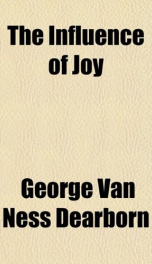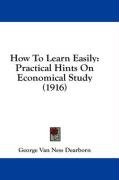the influence of joy

Purchase of this book includes free trial access to www.million-books.com where you can read more than a million books for free. This is an OCR edition with typos. Excerpt from book: Chapter II The Influence on Nutrition IN its material aspect, the human individuality is primarily metabolic or chemical, and its metabolism or protoplasmic life underlies of necessity all other bodily processes. Our first search, therefore, in our present endeavor to illustrate the influence of happiness, organic and personal, on the human life, is to understand in what manner it affects nutrition. For our immediate purpose, this term nutrition shall include digestion, absorption, excretion, and "assimilation" (metabolism) and shall imply something of personal dietetics, appetite, weight variations, and so forth. The gist qf this understanding is part of the deep common wisdom of the world, as may be seen in the habit in practice allthe way down from the Old Empire on the Nile to our banquet of yesternight, to have all things pleasant, attractive, and sedative when we eat ideally. This relationship is not of course epicureanism only, ignoring life's real values, but is rather a matter of practical workaday importance to long and happy life. Personal experience, fortified perhaps by ancestral counsel, has shown us all that at picnics, on holidays, and during vacations, in each of which, ordinarily, the joyous index is higher than usual, our appetite, like our digestion and bodily nutrition, is more than usually energetic. We all know, too, as first-hand knowledge, that if the care-free, holiday spirit last only two hours (during the meal and after), our nutrition profits, being performed without discomfort and with dispatch. This well-known principle, for reasons just suggested, is in a way the very heart of this book's thesis. It means, as onemay clearly see, that the state of "freedom from care," as Saleeby expresses it, contentment, organic happiness, somehow yields e...
Info about the book
Author:
Series:
Unknown
ASIN:
B002WU9Y08
Rating:
2.5/5 (3)Your rating:
0/5
Languge:
English
Users who have this book
Users who want this book
What readers are saying
What do you think? Write your own comment on this book!
write a commentif you like the influence of joy try:
Other books by this author
Do you want to exchange books? It’s EASY!
Get registered and find other users who want to give their favourite books to good hands!



